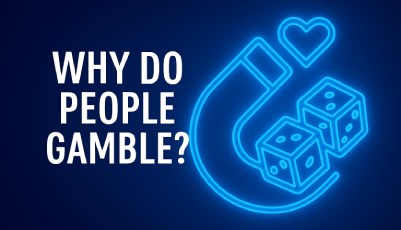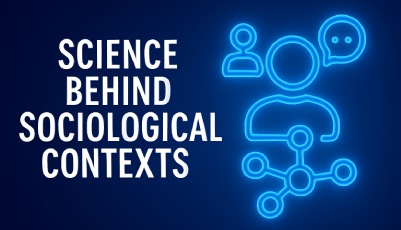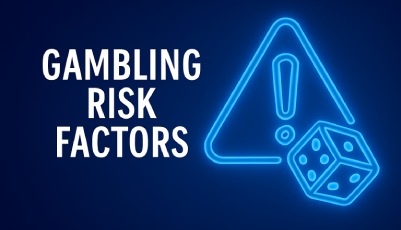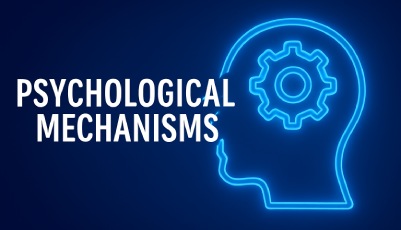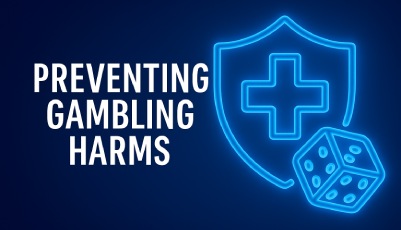Personalities and the Factors that Shape Them
People have different motivations and experience different emotions, all of which affect how they think and behave, thus shaping their patterns. According to Uher (2017), these patterns determine a person’s personality and differentiate people from each other. But what causes these differences? Studies, such as those referenced by Uher (2017), have shown that these differences stem from biological differences (such as genetic makeup) and environmental influences (which include our societies and experiences). But as Uher (2017) explains, people’s personalities are not necessarily their identities. Instead, they are processes that guide people’s behaviors, which are subject to change over time based on internal as well as external factors.
What Constitutes Problem Gambling?
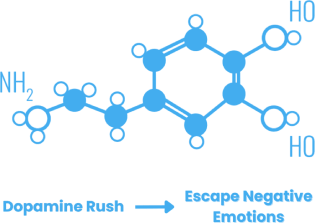
Blaszczynski (2013) defines problem gambling as an urge to keep gambling even when its effects may be negative. In his report, he says that there are numerous reasons why a person may do this. Some people do this because they are chasing a dopamine rush, others do it because it helps them escape negative emotions, while others do it because they think they can control what happens. But regardless of the reasons behind playing, people with disordered gambling cannot stop doing it, even when they know that it will hurt them or the people around them, which is why it is seen as a problem.
“Among pathological gamblers seeking treatment, 75% suffer major depression with 40% reporting clinically relevant suicidal ideation, 30% reporting substance abuse, and 14% reporting antisocial personality disorders, with an estimated 1.7% of suicides being gambling related.” Blaszczynski, A. (2013).
Are Some Personalities More Likely to Suffer from Problem Gambling? A Meta-Analysis
Various studies have shown that some personality traits predispose people to developing problem gambling habits. To uncover comprehensive findings on this, we focused on a Meta-analysis by Dudfield et al. (2022). Their research aimed to examine how different personality traits affected people’s likelihood of becoming problem gamblers. It included 20 samples taken from 19 studies and totaling 32,222 participants. Below were their findings:

Neuroticism
This refers to how much a person is able to manage their emotions. People who score high on this trait are likely to have trouble managing negative emotions such as anxiety or boredom. As such, they end up playing as a way to distract themselves. Unfortunately, this avoidance only works in the short term. What’s more, since it does not allow them to deal with what they are actually feeling, it sets them up for piled-up emotions, which the gamblers try to escape by playing even more.

Conscientiousness
This looks at how well a person is able to set goals, organize their life to meet those goals, and handle the impulses that may try to throw them off-track. In other words, it is all about self-discipline. People who score low on this often give in to impulses, even when they know that doing so will derail them from their plans. By doing this continuously, they create habits that soon become repetitive and compulsive. On the other hand, people who score high on this trait find it easy to come up with goals and stick to their plans.

Agreeableness
This looks at how much a person cares about the people around them. Those who score low in this regard tend not to care about social norms and are often skeptical of others and competitive. As a result, they are often less concerned or aware of how their actions might impact those around them – a gambler, in this case, might keep playing even if it will affect society negatively. But a person who scores high on this trait would think about what their actions may spell for others and would choose to do what was right or kind.
Overall, Dudfield et al. (2022) found that conscientiousness and neuroticism had high correlations with problem gambling, while agreeableness had a moderately negative correlation with problem gambling. However, the links between gambling disorders and openness and extraversion were unclear.
“Disordered gambling (DG) has been linked to specific personality traits. These personality traits include high levels of neuroticism and low levels of agreeableness and conscientiousness.” Spychala et al. (2021).
Similar Case Studies
A Strømme et al. (2021) meta-analysis also explored the relationship between personality traits and gambling disorders. By reviewing 28 studies with 20,587 participants, they found that people with high neuroticism were most likely to develop problem gambling. Their findings also showed negative correlations between openness, agreeableness, and conscientiousness with problem gambling. These findings were in line with Dudfield et al. (2022).
Similarly, Spychala et al. (2021) embarked on a longitudinal study where they assessed 4,729 participants at different ages (17, 20, and 24). Their aim was to assess whether the differences in traits among the participants would play a part in whether they engaged in disordered gambling. During their study, they found that those with high neuroticism and low agreeableness were showing problem gambling patterns, thus pointing to a strong relationship between these traits and gambling disorders.
Takeaway
The studies featured in this guide indicate that people’s personalities play a critical role in how they think and act. What’s more, longitudinal studies and meta-analyses have further linked high neuroticism, low conscientiousness, and low agreeableness to a high risk of problem gambling. Researchers can use these insights in developing prevention and intervention programs that address the root causes and motivations of gambling.
FAQs
Yes. Having some personality traits increases one’s likelihood of becoming a problem gambler, though this is not the only predictor.
People with high neuroticism, low agreeableness, and low conscientiousness are more likely to engage in problem gambling compared to those with contrasting scores.
People who have low agreeableness are more competitive and less concerned about how their actions affect others.
References
- Blaszczynski, A. (2013). The online issue: treating problem gambling in an era of uncontrolled access. Clinical Practice, 10(1), 1–4 https://www.openaccessjournals.com/articles/the-online-issue-treating-problem-gambling-in-an-era-of-uncontrolled-access.pdf
- Dudfield, F. W. H., Malouff, J. M., & Meynadier, J. (2022). The Association between the Five-factor Model of Personality and Problem Gambling: A Meta-analysis. Journal of Gambling Studies, 39, 669–687. https://link.springer.com/article/10.1007/s10899-022-10119-5
- Spychala, K. M., Gizer, I. R., Davis, C. N., Dash, G. F., Piasecki, T. M., & Slutske, W. S. (2021). Predicting disordered gambling across adolescence and young adulthood using genetic contributions to personality traits. Addiction, Advance online publication. Available via GREO: https://www.greo.ca/Modules/EvidenceCentre/files/Spychala%20et%20al%20%282021%29_Predicting%20disordered%20gambling%20across%20young%20adulthood_final.pdf
- Strømme, H., Lien, L., Martinez, P., & Leknes, S. (2021). The relationship between gambling problems and the five-factor model of personality: A systematic review and meta-analysis. Frontiers in Psychiatry, 12, 740235. https://doi.org/10.3389/fpsyt.2021.740235
- Uher, J. (2017). Basic definitions in personality psychology: Challenges for conceptual integrations. European Journal of Personality, 31(5), 572–573. https://eprints.lse.ac.uk/87730/1/Uher_Basic%20definitions%20in%20personaity.pdf
